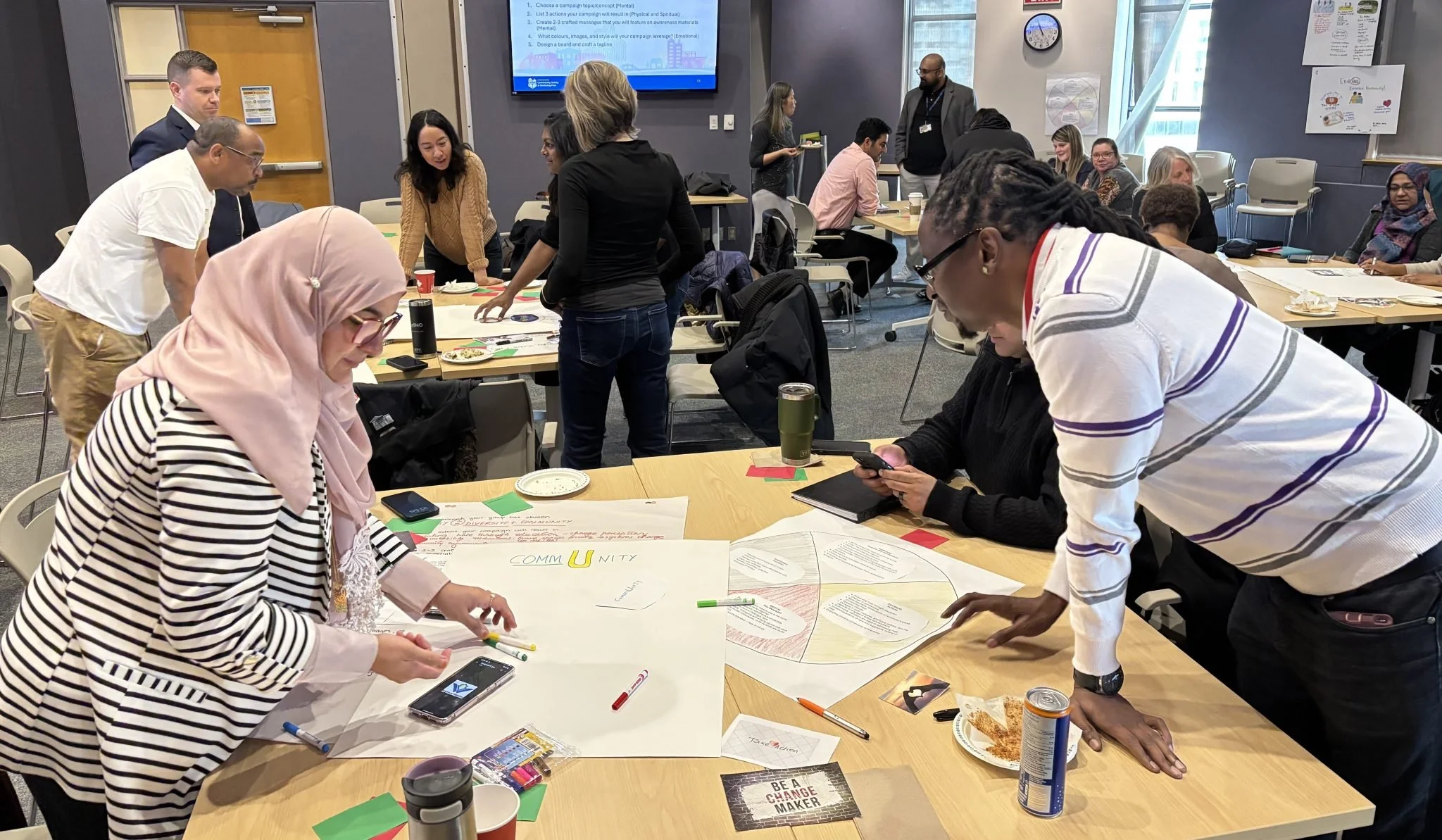#keepwaterlooregionkind
I want to help
On this page, you will find insights into what allyship truly means and practical ways to stand in solidarity against hate. You will also discover how we can work together to drive systemic change -- because collective action has the power to create lasting impact. Together, we can build a community where everyone feels safe and like they belong.
VIDEO : Speak Up Against Racism - Multiply
SOURCE: OCASI Ontario. (2023, December 4). Speak up against racism – Multiply [Video]. YouTube.
Allyship Means
-
Using Privilege
Using your privilege to stand up against injustice and to challenge discriminatory behaviour.
-
Recognizing
Recognizing the need for change and committing to fostering inclusion and equity for everyone, regardless of race, gender, sexual orientation, ability, religion, or any other aspect of identity.
-
Amplifying
Amplifying the voices of equity-denied groups who face systemic and institutional barriers to having their voices heard.
-
Commitment
Committing to building safer, more inclusive communities where everyone feels valued and respected, where everyone belongs.
Allyship is a verb. It is the practice of doing the work, taking action, standing up for and with equity-denied communities, and building relationships based on trust, consistency, and accountability.
Allyship is a lifelong journey of listening, learning, and standing in solidarity.
How to be a good ally
Educate yourself: Increasing your knowledge about the challenges experienced by equity-denied communities is a great place to start your journey of allyship. Seek out resources to better understand diverse experiences and perspectives that may differ from your own. Actively work to diversify your networks and connections. Learn about the history of systemic inequality. Learning, unlearning, and relearning is a key component of allyship.
Recognize your own bias: We all have unconscious biases that shape our beliefs, perceptions, and decisions. By actively reflecting on these biases, aim to work towards challenging your assumptions and preconceived notions while striving toward more inclusive behaviour. Be open to listening and learning about others’ experiences and perspectives, and work towards acknowledging your biases and the impacts on your beliefs and perceptions.
Practice inclusion: Work to create inclusive spaces where everyone feels welcomed and accepted. In your workplace, within your social and family circles, across your networks, and during your everyday interactions, actively work to promote inclusion and belonging for everyone.
Lead with empathy: Leading with empathy is a powerful way to remind us of our shared humanity. Framing interactions from a place of empathy and understanding can establish a foundation built on mutual respect.
Amplify unheard voices: Use your privilege to amplify the voices of those facing systemic barriers to being heard. This can shift the narrative to ensure inclusion of a diversity of voices and perspectives. Make space for all voices, actively listen, and use your platform to uplift voices not often heard or those often silenced.
Learn more about allyship
Making a collective systemic impact
Are you part of an organization, institution, business, or a community leader committed to addressing identity-based harm? We believe that real change happens when we come together. Whether you're just beginning to explore this space or you're ready to take action, we invite you to connect, learn more, collaborate and be part of the movement.
Together, we can build a safer, more inclusive community where everyone feels like they belong. Through partnerships and collaboration, we can amplify our efforts and create a collective impact that drives systemic change.
Benefits of a Collective Approach:
-
Build Safer, More Inclusive Spaces
Learn how to recognize and respond to incidents of hate and identity-based harm, fostering environments where everyone feels welcome.
-
Promote Accountability
Support your organization and community in making tangible progress toward equity and inclusion through accountability.
-
Ensure Continuity of Care
Help create a consistent support system so individuals impacted by harm receive equitable care — no matter where they turn.
-
Amplify Your Impact
Collaboration multiplies our efforts. By working together, we can drive meaningful, lasting change across systems and communities.
About The Combatting Hate Action Table
The Combatting Hate Action Table (CHAT) is an example of collective action driving systemic change. As part of the Community Safety and Wellbeing Plan, a Combatting Hate Action Table launched in April of 2024 with more than 30 community leaders from across Waterloo Region coming together to combat identity-based harm and hate in Waterloo Region.
These leaders represent diverse sectors and organizations, including: area municipalities, education, mental health, children and youth, newcomer and immigration, rural, health care, justice, police and diverse grassroots organizations. Together we are developing an action plan for combatting identity-based harm and hate that reflects the highest priorities, greatest impacts, and holds systems accountable.
Next Steps
Next steps for the action table include:
Building new and reinforcing existing relationships and partnerships between systems and within community.
Mapping current programs and services that address identity-based harm and hate or offer supports to people who have experienced harm.
Building a common understanding of what oppression and discrimination means within our system and communities.
Building a community-wide awareness campaign.
Building system accountability to combat hate and identity-based harm.















